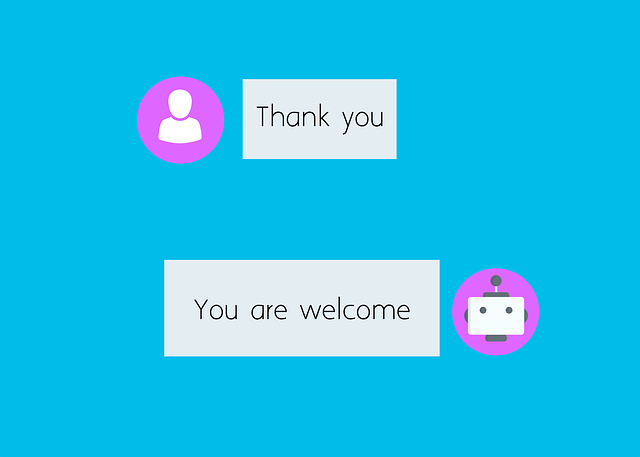Ecommerce chatbots powered by AI are transforming online retail, offering instant 24/7 support, product recommendations, and order processing via NLP and machine learning. They automate tasks, reduce costs, and provide customer data for improved marketing strategies. Key features include natural language conversations, seamless platform integration, and complex task handling. Integrating an ecommerce chatbot improves response times, boosts sales, and fosters brand loyalty. Success is measured through user satisfaction, conversion rates, and average handling time, with tools like Google Analytics and A/B testing aiding optimization.
In today’s digital landscape, an ecommerce chatbot is not just a luxury but a necessity. Understanding these AI-powered assistants is key to enhancing customer experiences and driving sales. This article delves into the fundamentals of ecommerce chatbots, exploring their pivotal role in supporting businesses. We unravel the benefits of implementing AI technology, highlighting key features that define modern chatbots. Additionally, we provide strategies for seamless integration and effective performance measurement, ensuring your chatbot becomes a powerful tool in your ecommerce arsenal.
- Understanding Ecommerce Chatbots: The Basics and Their Role
- Benefits of Implementing an AI-Powered Ecommerce Chatbot
- Key Features and Functionality in Modern Chatbots
- Integrating Chatbots into Your Ecommerce Platform Seamlessly
- Measuring Success: Strategies for Evaluating Chatbot Performance
Understanding Ecommerce Chatbots: The Basics and Their Role

Ecommerce chatbots are a relatively new yet rapidly growing segment of artificial intelligence (AI) technology, designed to enhance customer interactions and streamline business processes on online retail platforms. These bots leverage natural language processing (NLP) and machine learning algorithms to understand and respond to customer queries in real-time, much like human customer service representatives would. They can perform a wide range of tasks, from answering basic product questions and providing recommendations to processing orders and handling returns.
The role of an ecommerce chatbot is multifaceted. They act as the first line of support for customers, available 24/7, which significantly improves customer satisfaction by reducing response times. By automating routine tasks, they free up human agents to focus on more complex issues, leading to increased efficiency and cost savings for businesses. Moreover, these chatbots can collect valuable customer data, offering insights into buying behavior that can be used to refine marketing strategies and improve the overall shopping experience.
Benefits of Implementing an AI-Powered Ecommerce Chatbot

Implementing an AI-powered ecommerce chatbot offers a multitude of benefits for businesses in today’s digital landscape. These intelligent assistants can significantly enhance customer experiences by providing instant, 24/7 support. Whether it’s answering frequently asked questions, offering product recommendations, or guiding users through the checkout process, chatbots ensure swift responses and minimize wait times, thereby increasing customer satisfaction.
Moreover, AI-driven chatbots are capable of collecting valuable data from user interactions, allowing businesses to gain deeper insights into customer preferences and behaviors. This enables them to personalize marketing strategies, tailor product suggestions, and ultimately drive sales growth. By automating routine tasks, chatbots also free up human agents to focus on more complex issues, leading to improved operational efficiency and cost savings.
Key Features and Functionality in Modern Chatbots

Modern chatbots, particularly those used in the ecommerce sector, offer a range of key features and functionalities that enhance customer engagement and drive sales. One of the most significant is their ability to provide 24/7 support, instantly addressing customer inquiries and offering product recommendations at any time, significantly improving user experience. These chatbots are designed to understand natural language, allowing for more human-like conversations, which builds trust and encourages customers to interact naturally.
Another critical aspect is their integration with various platforms, including websites, messaging apps, and voice assistants. This versatility enables businesses to reach a wider audience across multiple touchpoints. Ecommerce chatbots can also be programmed to handle complex tasks such as order tracking, inventory management, and even processing payments, thereby streamlining operations and reducing the workload on human customer service representatives.
Integrating Chatbots into Your Ecommerce Platform Seamlessly

Integrating chatbots into your ecommerce platform can significantly enhance customer experience and drive sales. These AI-powered assistants offer 24/7 availability, instantly addressing customer queries about product details, inventory status, and even offering personalized recommendations. By implementing an ecommerce chatbot, businesses can reduce response times, allowing customers to make informed purchase decisions without delay.
Seamless integration ensures the chatbot becomes an intuitive part of the shopping journey. It should be accessible via various channels like live chat, messaging apps, or voice assistants. A well-designed chatbot interacts naturally, using conversational language to understand and fulfill customer needs. This not only boosts sales but also fosters a sense of personalized service, encouraging repeat business and building brand loyalty.
Measuring Success: Strategies for Evaluating Chatbot Performance

Measuring success is a critical aspect of evaluating an ecommerce chatbot’s performance. It involves assessing key metrics such as user satisfaction, conversion rates, and average handling time to understand the chatbot’s impact on customer experience and business goals. Platforms like Google Analytics can track user interactions with the chatbot, providing insights into popular features and areas for improvement.
Additionally, A/B testing allows comparing different chatbot versions or strategies to identify the most effective approaches. By analyzing response times, accuracy rates, and user feedback, businesses can fine-tune their ecommerce chatbots to deliver more personalized, efficient, and successful customer interactions.
An ecommerce chatbot is not just a tool, but a strategic asset that enhances customer experience, drives sales, and optimizes operations. By understanding their role, leveraging their benefits, and integrating them seamlessly into your platform, businesses can harness the power of AI to navigate the competitive landscape of online retail. Measuring success through key performance indicators ensures continuous improvement, making chatbots an indispensable component of modern ecommerce strategies.
